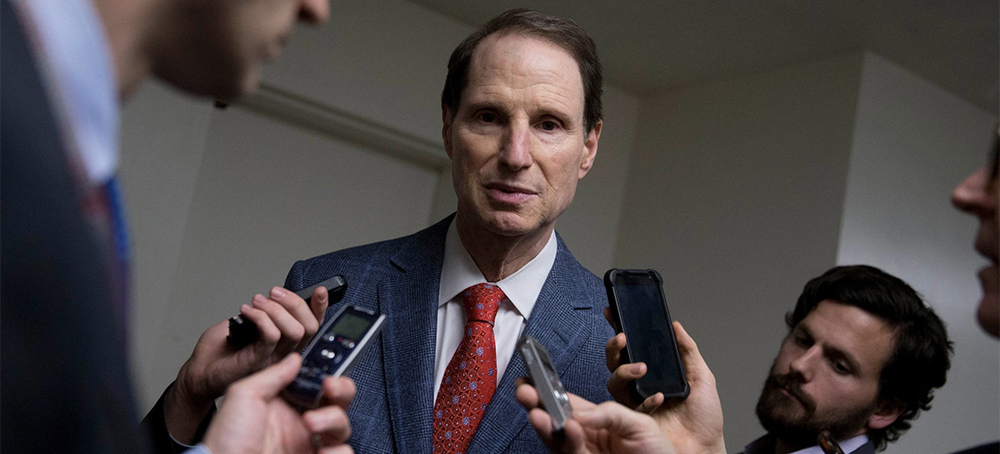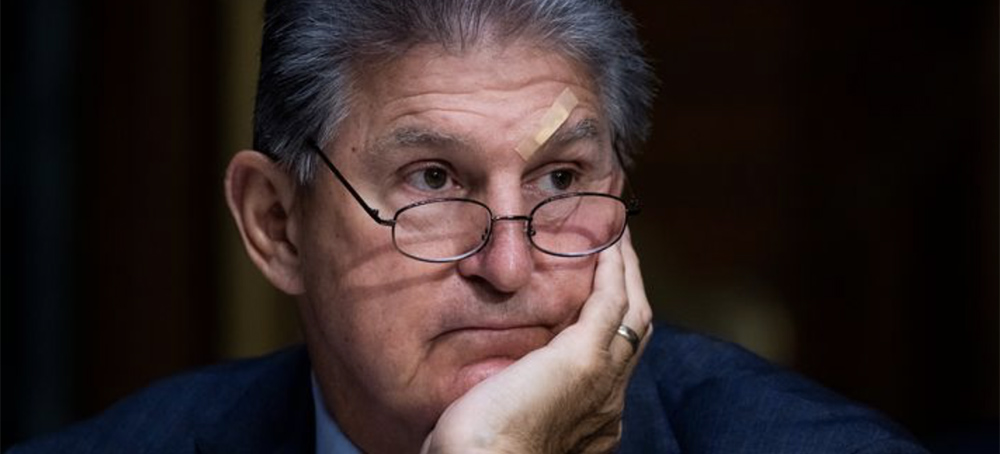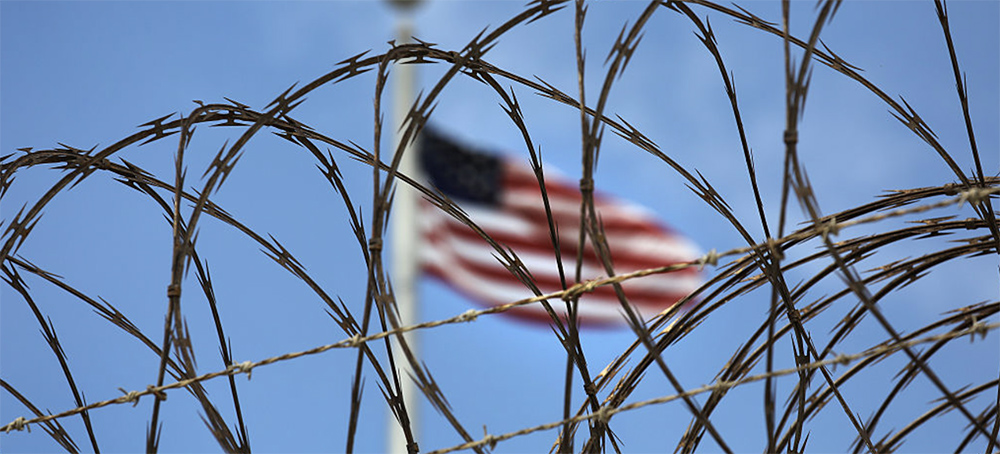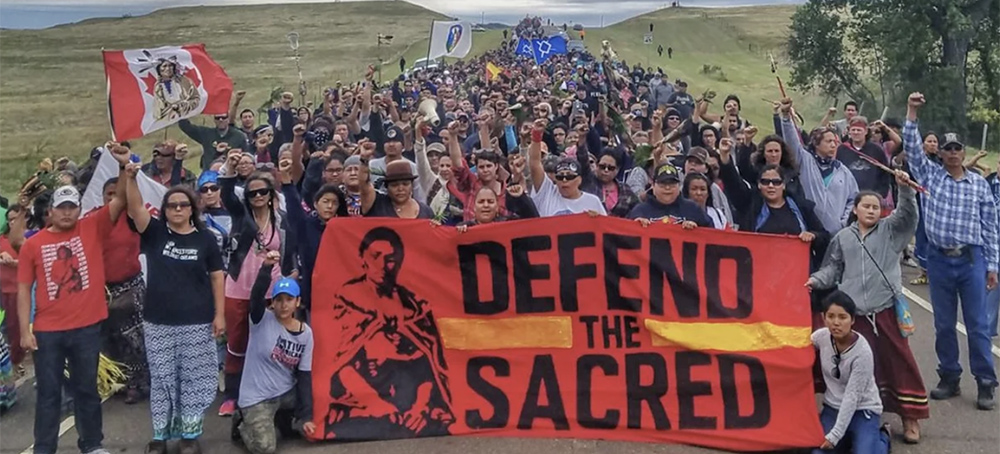Live on the homepage now!
Reader Supported News
The justice is a little bit tardy in her concerns around the Court's credibility.
Justices must be "hyper vigilant to make sure they're not letting personal biases creep into their decisions, since judges are people, too," Barrett said at a lecture hosted by the University of Louisville's McConnell Center. Introduced by Senate Republican leader Mitch McConnell, who founded the center and played a key role in pushing through her confirmation in the last days of the Trump administration, Barrett spoke at length about her desire for others to see the Supreme Court as nonpartisan. Barrett said the media's reporting of opinions doesn't capture the deliberative process in reaching those decisions. And she insisted that "judicial philosophies are not the same as political parties.”
"To say the court's reasoning is flawed is different from saying the court is acting in a partisan manner," said Barrett, whose confirmation to the seat left open by the death of the liberal Justice Ruth Bader Ginsburg cemented conservative control of the court. "I think we need to evaluate what the court is doing on its own terms.”
Considering that she owes her present (lifetime) position to a process that McConnell personally corrupted, that she is the product of an utterly politicized vetting process, and that she was appointed by the most singularly corrupt president in the history of the republic, I’d say that Barrett is a little bit tardy in her obviously sincere concern for the Court’s credibility. After all, she is merely the most recent, high-profile product of a federal judicial system that McConnell and the conservative intellectual chop-shops have turned into something approximately as non-partisan as McConnell’s own frontal lobes. She’s ascended to her current eminence under a dark and lucky star. She should be grateful for that and stop talking obvious nonsense of which she is a walking refutation.
 Senator Ron Wyden of Oregon. (photo: Andrew Harrer/Bloomberg News/Getty Images)
Senator Ron Wyden of Oregon. (photo: Andrew Harrer/Bloomberg News/Getty Images)
The House Ways and Means Committee’s proposal to pay for trillions in social spending leaves wealth gains and inheritances largely alone. It focuses instead on a more traditional target: income.
But the proposal, while substantial in scope, stopped well short of changes needed to dent the vast fortunes of tycoons like Jeff Bezos and Elon Musk, or to thoroughly close the most egregious loopholes exploited by high-flying captains of finance. It aimed to go after the merely rich more than the fabulously rich.
Facing the delicate politics of a narrowly divided Congress, senior House Democrats opted to be more mindful of moderate concerns in their party than of its progressive ambitions. They focused on traditional ways of raising revenue: by raising tax rates on income rather than targeting wealth itself.
 Sen. Joe Manchin (D-WV) helped craft a compromise version of the For The People Act that he will now seek to pass the Senate. (photo: Tom Williams/Getty Images)
Sen. Joe Manchin (D-WV) helped craft a compromise version of the For The People Act that he will now seek to pass the Senate. (photo: Tom Williams/Getty Images)
The bill is being crafted by Sen. Joe Manchin (D-W.Va.), who opposed the original bill, and a group of Democrats.
The coming agreement comes after months of negotiations to craft a compromise version of the bill, called S.1 in the Senate. The new deal is being crafted by a group of Democratic senators led by Manchin and Senate Majority Leader Chuck Schumer (N.Y.), along with the bill’s original co-sponsors Sens. Amy Klobuchar (Minn.) and Jeff Merkley (Ore.), and Sens. Raphael Warnock (Ga.), Alex Padilla (Calif.), Angus King (Maine), Tim Kaine (Va.) and Jon Tester (Mont.).
“The compromise on a new S. 1 is pretty close to being fully baked,” said a senior Democratic congressional aide with knowledge of the bill.
The compromise bill trims the original For The People Act to meet the outline of compromise legislation Manchin put forward in June, according to sources. It includes most of the voter access expansions and election administration provisions in the original bill, including mandatory early voting, automatic voter registration and other key voting rights elements that were originally taken from the late John Lewis’ Voter Empowerment Act. It also includes provisions limiting partisan gerrymandering, banning undisclosed “dark money” in elections and newer provisions on addressing so-called election subversion, among other, as yet undisclosed elements.
While the bill largely hews to Manchin’s original outline, including a loose form of voter identification, it will maintain some other elements from the original bill that were not included in Manchin’s June compromise outline, according to sources with knowledge of the negotiations. Still, this new bill is now Manchin’s to sell and pass, as he has taken the lead on it.
The imminent announcement of a compromise bill comes ahead of the Senate’s return from its August recess break on Sept. 14 for a promised focus on voting rights. The steady passage of voter restrictions by Republicans in multiple states, all on the basis of Donald Trump’s election fraud lies that led to the Jan. 6 attack on the Capitol, has made action on voting rights an imperative for most Democrats. The passage of the latest anti-voter law by Republicans in Texas on a party-line vote has intensified the push for federal voting rights legislation by Congress.
With the announcement of an agreement on the bill, the push to pass the For The People Act enters its final phase. The bill first passed the House in May on a near party-line vote, with one Democrat voting no. Republicans filibustered a vote to begin debate on the bill in June after Manchin first reached an agreement with Schumer to develop a compromise proposal to win his support. This solidified all 50 members of the Senate Democratic Caucus in support of some version of the bill.
Immediately before the Senate went on break last month, Schumer sought to bring up the For The People Act for a vote only to be blocked for a second time by Republicans. Voting rights would be “the first matter of legislative business when the Senate returns to session in September,” Schumer said at the time.
After the first Republican filibuster of the bill, activists and state lawmakers from states where Republicans were passing new restrictions on voting mounted a nonstop campaign calling on the Senate to pass the bill and to change the Senate’s filibuster rules, which require 60 votes to both begin and end debate on most legislation, in order to do so. Democratic lawmakers from Texas flew into Washington to temporarily block their state legislature from passing onerous restrictions on voting. They were joined at rallies at the U.S. Capitol and in the halls of the Senate lobbying for voting rights bills by state lawmakers from other states like Arizona, Georgia and more. That advocacy will now kick back into gear, with a rally scheduled for Sept. 14 at the Senate.
The final push to pass the For The People Act, or whatever name Manchin’s compromise bill takes on, will begin in earnest when the Senate returns.
Manchin is reportedly already shopping his compromise proposal to Republicans in an attempt to bring ten of them along to break a filibuster, according to Politico. He has consistently stated that he believes Republicans can support a voting rights bill that looks like the compromise draft he put forward in June, especially since it includes a national voter identification requirement, something Republicans have long sought. The likelihood of Manchin finding any Republican support is, to put it lightly, low.
Schumer is likely to file for cloture on the compromise bill soon after the Senate returns, setting up a floor vote. Republicans will then be given the opportunity to block the bill for a third time. But this time, they will be blocking Manchin’s bill.
Once his compromise bill is blocked, the debate over the filibuster that has been boiling all year long will really begin. That will mean confronting the opposition to changing the filibuster rules publicly expressed by both Manchin and Sen. Kyrsten Sinema (D-Ariz.). Manchin stated this year both that he would never weaken the filibuster rules and that he would back a so-called “talking filibuster.” Sinema also stood by her opposition to changing the filibuster rules all year, but also stated her support for a caucus-wide debate on it in a Washington Post op-ed in June.
The question voting rights activists raise about Manchin is whether he would invest so much time and effort into crafting a compromise bill only to let his own opposition to changing a procedural rule destroy all the hard work. Why play the role of the late Sen. John McCain (R-Ariz.) giving the thumbs down to tank his party’s top priority legislation when he co-wrote the bill? Less is known about Sinema’s position, but she is a co-sponsor of the bill and a vocal supporter of its policies.
The answer to that question is expected to come in October or even November, as the ongoing infrastructure and social program fight intervenes in the leadup to the Sept. 27 reconciliation deadline. But the full-fledged fight over voting rights, with the parties on opposite sides, one for voting rights and the other opposed, and whether a minority can filibuster to block the protection of those rights will now be had.
 Apple products, including iPhones, have been vulnerable since at least March. (photo: Loic Venance/AFP/Getty Images)
Apple products, including iPhones, have been vulnerable since at least March. (photo: Loic Venance/AFP/Getty Images)
Discovery was shared with Apple, which on Monday released a patch to fix the vulnerability
The discovery, which was made as the researchers were examining the mobile phone of a Saudi activist, was shared with Apple, which on Monday released a patch to fix the vulnerability.
Researchers said the speed with which Apple was seeking to fix the vulnerability to its operating system, which in effect has allowed the latest iPhones and operating systems to be vulnerable to attack by NSO Group’s government clients, underscored the “absolute seriousness” of their findings.
“Today is going to be a rough day at NSO because the lights are going to go out on one of their most productive exploits,” said John Scott-Railton, a senior Citizen Lab researcher.
When it is successfully deployed against a target, NSO Group’s spyware, called Pegasus, can silently hack into a phone, collect a user’s personal and private information, intercept calls and messages, and even turn a mobile phone into a remote listening device.
NSO Group has said that its spyware is only meant to be used by licensed law enforcement agencies to target criminals and terrorists. But investigations – including the recent publication of the Pegasus Project by the Guardian and other outlets – have revealed ways in which the spyware has been used by government clients to target journalists and human rights activists around the world.
Asked for comment, NSO Group issued a statement saying: “NSO Group will continue to provide intelligence and law enforcement agencies around the world with life-saving technologies to fight terror and crime.”
Citizen Lab said it was able to make a “high-confidence attribution” that the exploit had been created by NSO Group because they observed “multiple distinctive elements” in the spyware. An exploit is a technical vulnerability that allows spyware to infect a phone, and the code of the exploit discovered by Citizen Lab contained a specific bug that the researchers had only ever associated with NSO Group’s Pegasus in the past.
“We believe that the bug is distinctive enough to point back to NSO,” Citizen Lab said in a blogpost.
The researchers also found that the spyware, which they have called FORCEDENTRY, used multiple process names – identifying features of the malware code – including one that was used in a previous attack that used NSO Group spyware on an Al Jazeera journalist in July 2020.
NSO Group has said it cannot reveal the identity of its clients. But the Guardian has previously reported that NSO Group dropped Saudi Arabia as a client in the wake of Citizen Lab’s report that the kingdom was the likely culprit behind dozens of attacks against Al Jazeera journalists in 2020.
The development marks more bad news for Apple. Forensic examinations of mobile phones conducted both by Citizen Lab and Amnesty International’s security lab have found that even the most up-to-date iPhones, using the most up to date operating system, have been vulnerable to attacks by Pegasus.
Ivan Krstić, head of Apple security engineering and architecture, said in a statement to the Guardian: “After identifying the vulnerability used by this exploit for iMessage, Apple rapidly developed and deployed a fix in iOS 14.8 to protect our users. We’d like to commend Citizen Lab for successfully completing the very difficult work of obtaining a sample of this exploit so we could develop this fix quickly.”
He added: “Attacks like the ones described are highly sophisticated, cost millions of dollars to develop, often have a short shelf life, and are used to target specific individuals. While that means they are not a threat to the overwhelming majority of our users, we continue to work tirelessly to defend all our customers, and we are constantly adding new protections for their devices and data.”
Citizen Lab said in its statement that the company was releasing a fix for the exploit on Monday, and urged all Apple users to update devices as soon as possible, including all Apple devices that use iOS versions prior to 14.8.
The exploit discovered by Citizen Lab is known as a “zero-day” vulnerability, which allows users of the spyware to infect a phone without the user having any idea that their mobile phones have been hacked. In this case, the FORCEDENTRY exploit used a weakness in Apple’s iMessage function to silently send corrupt files to a phone that appeared to be GIF extensions, but were actually Adobe PDF files containing malicious code.
“Our latest discovery of yet another Apple zero-day employed as part of NSO Group’s arsenal further illustrates that companies like NSO Group are facilitating ‘despotism-as-a-service’ for unaccountable government security agencies,” researchers said.
Bill Marczak, who first discovered the exploit at Citizen Lab, said the findings also highlighted the importance of securing popular messaging apps, which were increasingly being used as a target by sophisticated threat actors.
“As presently engineered, many chat apps have become an irresistible soft target. Without intense engineering focus, we believe that they will continue to be heavily targeted, and successfully exploited,” Citizen Lab said.
 Razor wire tops the fence of the U.S. prison at Guantánamo Bay, Cuba. (photo: John Moore/Getty Images)
Razor wire tops the fence of the U.S. prison at Guantánamo Bay, Cuba. (photo: John Moore/Getty Images)
Two decades after 9/11, the US prison at Guantánamo Bay still holds detainees who have been charged with no crime. The crimes of Gitmo must end and the base must be returned to the Cuban republic.
Presumably, too, he has lost some sense of well-being, and not merely for the psychological and physical distress that imprisonment provokes by design. He was the first prisoner to be subjected to the CIA’s “enhanced interrogation” program at an agency black site, making his legacy distinctly sinister among his cohort.
His case is thus notorious among the 780 men and children who have been held at Guantánamo. He was the first to be waterboarded, subjected to forced nudity, deprived of sleep for days on end, and held in a box no larger than a human coffin for long stretches of time.
The same fate befell countless others, but his case, detailed at length in the 2012 Senate Intelligence Committee’s report on torture, is perhaps especially haunting for the precedent that it set. When al-Abidin Muhammad Husayn entered CIA custody following his capture in a US-Pakistani raid in March 2002 in Faisalabad, Pakistan, he still had his left eye. By the time he was transferred from a black site to Gitmo four years later, he had lost that, too.
Mistaken Identity
At the time of his torture, the CIA believed al-Abidin Muhammad Husayn, whom they referred to as Abu Zubaydah, to be the number-three-top-ranking leader of Al Qaeda. As with so many pretenses and declarations that the US government has conjured since September 11, 2001, the agency was incorrect. Allegations of his connection to Al Qaeda have been discredited by both the US Senate Select Committee on Intelligence and the UN Security Council.
The roots of such claims are likely to be found in his role facilitating the travel of a number of militant Islamic fighters in Afghanistan during the early 1990s, after the guerrilla force known as the Mujahideen had purged the country of Soviet forces. The United States had spent over $2 billion arming the Mujahideen, making Washington and al-Abidin Muhammad Husayn allies of sorts, however opaque the nature of that coalition.
On July 15 of this year, I sat in a conference room at the Pentagon and watched fifteen minutes of his most recent Guantánamo Periodic Review Board (PRB) hearing, which was beamed in live from the base in eastern Cuba. For many years, the PRB referred to him as Abu Zubaydah, but at this hearing they used his legal name in lieu of the wartime moniker. Revealing the simultaneously patronizing and intimate relationship that the national-security state has with its remaining Guantánamo detainees, the board ultimately came to call him by his first name, Zayn.
Zayn is perhaps most physically identifiable for the eyepatch that has for many years covered the space where his left eye used to be. On the day of his hearing, however, the eye patch was absent. There was an elegance to him as he waited in the courtroom, flanked by a government-appointed personal representative on one side and an Arabic-language translator on the other. His white shirt was pressed, his beard and hair trimmed neat. He sat taciturn, gazing downward through a pair of round glasses, passing prayer beads between his thumb and forefinger.
Understandably, he was trying to make the best possible physical impression on the Board, which was convened somewhere in Virginia and composed of officials from the departments of Defense, Justice, State, and Homeland Security, as well as the Office of the Director of National Intelligence and the Joint Chiefs of Staff. At the opening of the unclassified portion of the hearing, which journalists were permitted to observe from the Pentagon, a PRB official reiterated the entity’s primary function.
They were not assembled to determine the “lawfulness of Zayn’s detention,” the official stressed, but rather to decide whether, nineteen years after his capture and total disconnection from the outside world, he still posed a threat to US national security. Should the board consider a detainee a “continuing significant threat to the security of the United States,” his ongoing detention would be deemed necessary.
The hearing’s opening qualification — that the legality of his detention is not up for decision — should hardly be considered startling at this point, however disturbing such tacit acceptance might be. Zayn is one of countless men still held at Guantánamo who has never been charged with a crime.
Legal Limbo
A month to the day after the hearing, images streamed out of Kabul as the Taliban reclaimed the Afghan capital. The “war on terror” was ostensibly drawing to a close, with the seemingly interminable and devastating US intervention in Afghanistan as its longest and perhaps most flagrantly failed instantiation. At least 240,000 Afghans have died in the conflict, a large number of them civilians, and Washington ultimately replaced the Taliban with the Taliban.
Yet even as the forever war meets its nihilistic denouement, the illegal detention at Guantánamo forges on, a bleak national-security plight of Washington’s own making. Barack Obama never made good on his campaign promise and 2009 executive order to close the prison, and while one of the forty men who was being held there when Joe Biden took office has since been transferred to his home country of Morocco, it is unclear how the current administration will contend with the thirty-nine men who remain.
The military commissions war court established at the base to adjudicate the fates of those facing charges is currently handling the cases of twelve men — three facing proposed charges, seven facing active charges, and two who have been convicted. Another ten of the remaining so-called enemy combatants are still held in law-of-war detention without facing charges at all. They are now recommended for transfer to another country, which will oversee the relevant security measures.
The last seventeen neither face charges nor have been recommended for transfer or release. At this point in the prison’s history, this last category may be the most extreme state of legal limbo a Guantánamo detainee could face. It is also the category in which Zayn al-Abidin Muhammad Husayn finds himself.
Despite Washington’s flagrant bypassing of international law in the decades after September 11, war is by no means a lawless paradigm. And as scholar Nasser Hussain has argued, Guantánamo is not the lawless place some imagine it to be; rather, it is a space in which emergent laws proliferate to fit the needs of a belligerent government seizing upon a state of exception.
The legal status of the men still held at Gitmo is murky by design, not only because it is unlawful to indefinitely detain a person without charging him with a crime, but because the judicial apparatus at the base seeks to try civilians within the framework of a military court.
Enemies at the Gates
The way that such practices were implemented is itself a vestige of US invasions long past. The United States coercively obtained a lease to the territory on which Guantánamo sits as part of the agreement ending its first military occupation of Cuba in 1902 — another two US military interventions would storm the island before long. The lease had no termination date and could be annulled only with the agreement of both governments. When the agreement was renegotiated in 1934, following a period of tumultuous regime change on the island, it once again cemented a lease of the Cuban territory in perpetuity.
An overseas military presence with no termination date sounds not unlike “forever war,” but the connection is deeper still. In the immediate aftermath of 9/11, when the Bush administration added Cuba to its “Axis of Evil” list, it began kidnapping and illegally detaining men and boys on territory that it claimed was under Cuban jurisdiction and therefore not subject to US law.
This is more than mere historical rhyme. There is a troubling conclusion to be drawn from the 120 years that the United States has coercively occupied the base at Guantánamo. The potential culmination of Washington’s post-9/11 forever wars hardly marks the end of the propensity for unceasing extraterritorial militarism. Much like the resistance that a long history of US economic, political, and military intervention provoked in Cuba before and after the island’s 1959 revolution, the destabilization and antipathy that US empire sows rarely comes to a peaceable and tidy conclusion.
An empire needs enemies beyond its gates, and Washington has proved exceptionally skilled at making them. As historian Ada Ferrer notes in her new book, Cuba: An American History, Alberto Mora, the Cuban American general counsel for the US Navy, described Guantánamo as one of the greatest causes of US combat deaths in Iraq, “as judged by [its] effectiveness in recruiting insurgent fighters into combat.”
The US government is remarkably adept at forging the conditions by which it justifies its interventions. In December 2001, US secretary of defense Donald Rumsfeld refused a negotiated peace deal with the Taliban. Instead of accepting a settlement with a government that itself hoped to rid Afghanistan of Al Qaeda and was concerned with gaining recognition from Western governments, Washington engaged in twenty years of warfare that caused unimaginable loss of life. This was not because wresting Osama bin Laden from Taliban-ruled Afghanistan by other means was unfeasible. Washington wanted a war.
As recent images of the humanitarian crisis that US intervention wrought in that country have underlined, Washington’s global crusade against terror has certainly not made the world a safer place. The hundreds of thousands of lives lost, the trauma and devastation that do not end when US combat boots leave Iraqi or Afghan soil, constitute America’s legacy for the people it promised to liberate.
Incommunicado
Where does this leave Zayn al-Abidin Muhammad Husayn, who never swore allegiance to Osama bin Laden, and whose purported links to Al Qaeda have been debunked by the US government itself? Whatever connections or intelligence he was suspected of possessing at the time of his capture and torture are now, like the war on terror itself, two decades old. He has no network to facilitate and no information from the outside world to withhold.
His representatives believe that the PRB’s decision to categorize al-Abidin Muhammad Husayn as an ongoing national-security threat, and therefore unfit for transfer or release, is a matter of self-preservation. As his attorney wrote in his most recent PRB statement:
The CIA has a great deal of reason to want Abu Zubaydah to be held incommunicado for the rest of his life. That is because the fabrication of the facts used to justify the creation of the torture program would no longer be held incommunicado.
While the UN National Security Council argues that he was never affiliated with Al Qaeda and is unlikely to affiliate with the organization in the future, it is understandable if a man kidnapped, tortured, and illegally imprisoned for almost two decades might harbor some antipathy towards the United States.
Ultimately, Zayn al-Abidin Muhammad Husayn is a danger to US interests because his release might allow him to enumerate, in his own words, what the CIA did to him at its black sites all those years ago. If that is a threat to American safety, it is most certainly one of Washington’s own making.
 Thousands of pro-choice activists, including feminist groups from the U.S. and Chile, wave their iconic green handkerchiefs outside Congress in Buenos Aires, Argentina, Feb. 19, 2020. (photo: Natacha Pisarenko/AP)
Thousands of pro-choice activists, including feminist groups from the U.S. and Chile, wave their iconic green handkerchiefs outside Congress in Buenos Aires, Argentina, Feb. 19, 2020. (photo: Natacha Pisarenko/AP)
The vast majority of women in the region still lack access to legal abortions, but restrictions have now been lifted or relaxed over the last 15 years in at least half a dozen countries.
“This is a long fight, it takes a lot of time and work to change minds and perceptions,” said Cristina Rosero, legal advisor for Latin America and the Caribbean for the Center for Reproductive Rights, an abortion rights group based in New York. “But I think we are reaching a turning point.”
The shift in Latin America comes in contrast to the United States, where several conservative states have passed antiabortion laws in recent months, and the Supreme Court seems poised to at least trim the constitutional protection the procedures currently have. Both in the U.S. and in Latin America, powerful opponents of legalization include the Roman Catholic Church, evangelical Christian denominations and conservative politicians.
But advocates for abortion rights have been buoyed by a wave of feminist activism that has swept across Latin America and the Caribbean in recent years, shaking historically male-dominated power structures.
Through political pressure campaigns organized on social media and sometimes violent street protests, the movement has succeeded in bringing reproductive rights — along with the issues of workplace equality, female political representation and crimes against women — to the forefront of the political agenda.
Marchers from Chile to Mexico demanding equality for women now brandish the green handkerchiefs that abortion rights demonstrators in Argentina have waved as symbols of their signature movement.
In January, Argentina formally legalized abortion in the first 14 weeks of pregnancy, following Senate passage of a law allowing the procedure.
Argentine lawmakers acted despite an appeal from Pope Francis — their revered countryman — to reject expansion of abortion rights.
“Is it justice to eliminate a human life to solve a problem?” the pontiff asked in a letter sent to former students as the abortion bill was being debated in Buenos Aires. “Is it justice to hire an assassin to solve a problem?”
In Mexico, the Supreme Court threw out a statute in the state of Coahuila — which borders Texas — that imposed prison terms of up to three years for women who had abortions and for anyone who assisted them.
The court's president, Arturo Zaldivar, called the decision a precedent-setting “watershed” for the country.
Until the changes in Argentina and Mexico, only smaller nations — Cuba, Uruguay and Guyana — had decriminalized abortion.
In another potential landmark case, the Colombian Constitutional Court is expected to rule in coming weeks whether to dramatically expand abortion rights.
As in many Latin American countries, the only exceptions there currently are cases of rape, incest, fatal fetal impairments and threats to the health of the mother.
Before the seismic shifts in Argentina and Mexico, change in regional abortion law has generally been incremental.
In April, justices in Ecuador decriminalized abortion in all cases of rape. Previously, only rape victims with mental disabilities could qualify.
In Chile, activists inspired by the change in neighboring Argentina hope to utilize an ongoing constitutional-rewrite process to broaden access. Until 2017, Chile largely banned abortion outright. The 2017 legislative change permitted the procedure in cases of rape, unviable fetuses and to save a mother’s life.
The loosening of restrictions in Latin America comes as the debate over abortion in the United States reaches a new level of contentiousness.
This month in a 5-4 vote, the U.S. Supreme Court declined to void a Texas law that prohibits abortion after six weeks — before many women know they are pregnant — even in cases of rape or incest.
The justices made clear they were not deciding the constitutionality of the law, which could still be struck down. But the decision raised the specter that the court's new conservative majority could eventually overturn Roe vs. Wade, the 1973 decision that guarantees a woman's right to abortion.
In Latin America, abortion rights advocates have turned to courts as well as legislatures to advance their cause.
Activists have often stressed health concerns in an effort to dodge moral imponderables. They argue that because women will seek abortions regardless of legality — backdoor terminations kill hundreds of women each year in Latin America, according to the World Health Organization — it is better that they have access to a safe, lawful process.
“We put the focus on how women from the most vulnerable communities — they live in poverty, suffer from discrimination, probably don’t have access to resources or education — are most in need,” Rosero said.
While mostly underground, abortion is widely available in Latin America and the Caribbean.
The Guttmacher Institute, a New York-based research group that supports abortion rights, estimated that between 2010 and 2014 nearly a third of all pregnancies in the region ended in abortion.
The biggest stage for the abortion debate in Latin America is Brazil, home to the world's largest Catholic population.
The issue bolted into the headlines in Brazil last year when a 10-year-old girl from Espírito Santo state was found to be pregnant, the result of rape by her uncle, according to Human Rights Watch. Though she was legally entitled to an abortion, one hospital initially refused to perform the procedure.
She eventually had the abortion, but antiabortion protestors — who published the girl's name — blocked the entrance of the hospital where the procedure was performed. The girl, holding two stuffed animals, had to enter hidden in a minivan.
On the legal front, a case that could potentially lead to broader decriminalization has been pending before Brazil's high court since 2017, but experts don't expect a decision anytime soon.
"The situation in Brazil, unfortunately, appears to be the opposite of that in Mexico," said Juliana Cesario Alvim, an abortion rights activist and professor of human rights at the Federal University of Minas Gerais. "We have a very conservative federal government that is vocally opposed to reproductive rights and women's rights."
Advocates have pinned their hopes on the possibility that President Jair Bolsonaro, a right-wing populist, can be defeated in elections next year.
In the meantime, he has vowed to prevent any loosening of restrictions and denounced the historic shift in neighboring Argentina.
“I mourn for the lives of Argentine children, now subject to being ripped from the bellies of their mothers with the consent of the State,” he tweeted after the Senate vote in Buenos Aires. “If it depends on me and my government, abortion will never be approved on our soil. We will always fight to protect the life of the innocent.”
Other opponents are also hunkering down.
Lawmakers in Honduras — which suffers from one of the world’s highest rates of sexual violence — passed a constitutional amendment in January designed to block any future effort to legalize abortion, even for rape victims.
Honduras is among at least six nations in the region — the others are El Salvador, Nicaragua, the Dominican Republic, Haiti and Suriname — with blanket prohibitions on abortion, according to the Center for Reproductive Rights.
Still, abortion rights advocates have been able to get some jailed women sprung or their cases dismissed, notably in El Salvador.
Sara Rogel, a Salvadoran woman, was released from jail in the Central American nation in June after serving nine years of an initial 30-year sentence for terminating her pregnancy. Her lawyer said she had fallen and suffered a miscarriage and should never have been prosecuted.
In Mexico, where the leftist president, Andrés Manuel López Obrador, has maintained public neutrality on the abortion question, the Supreme Court decision Tuesday will not change things overnight.
Legal abortions within the first 12 weeks of pregnancy are currently only available in Mexico City and the states of Oaxaca, Veracruz and Hidalgo.
Broad implementation of the court ruling could take many months if not longer. The decision voided the law in the state of Coahuila but did not strike down restrictive abortion statutes still on the books in 28 other states.
Activists vowed to go “state to state” in a bid to pressure local lawmakers to comply with the high court ruling, filing lawsuits if necessary.
“We’re going to keep on working so that the penal codes are changed in the states — and then we can talk of a decriminalization of abortion in Mexico," said Isabel Fulda, an abortion-rights activist in Mexico City. “That is the next step.”
 No DAPL Protest March at Standing Rock in 2016, after the infamous usage of attack dogs by DAPL security upon water protectors. (photo: Dallas Goldtooth/Indigenous Environmental Network)
No DAPL Protest March at Standing Rock in 2016, after the infamous usage of attack dogs by DAPL security upon water protectors. (photo: Dallas Goldtooth/Indigenous Environmental Network)
The analysis from the Indigenous Environmental Network (IEN) and Oil Change International finds Indigenous efforts have staved off more pollution than all the cars on the road in the U.S. and Canada, and about equal to 400 new coal-fired power plants.
"From an Indigenous perspective, when we are confronting the climate crisis we are inherently confronting the systems of colonization and white supremacy as well," Dallas Goldtooth, an IEN organizer, told Grist. "It's more than just stopping fracking development and pipelines and it's more than just developing clean energy, it's about actually fundamentally changing how we see the world itself."
As reported by Grist:
The report and data analysis by Goldtooth, Alberto Saldamando, and Tom Goldtooth of IEN and Kyle Gracey and Collin Rees of OCI, is meant to dispel the myth that land defenders and those on the frontlines of the struggles against fossil fuel projects are not making an impact. The work is cause to celebrate, Goldtooth says.
"When you take a step back and look at the work that Indigenous peoples have put in over the years and decades, it really goes to show that we collectively are making a tremendous impact for the benefit of this planet," Goldtooth told Grist.
"It backs up what we've constantly been saying," he added, "recognizing Indigenous Rights protects the water, protects the land, and protects our futures."
Follow us on facebook and twitter!
PO Box 2043 / Citrus Heights, CA 95611



No comments:
Post a Comment